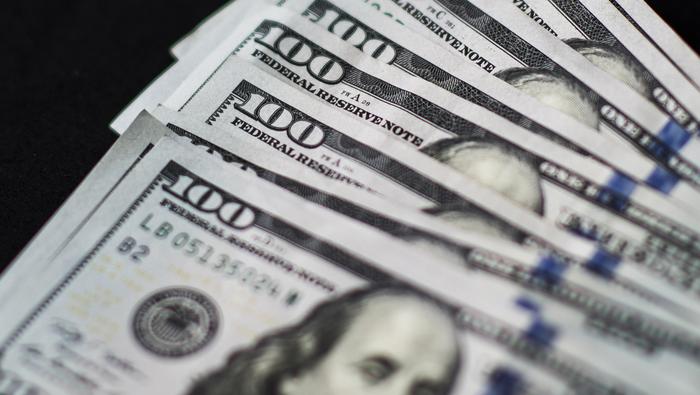
Fundamental Forecast for Euro: Neutral
- EUR-crosses started to breakdown mid-week, and the March FOMC minutes helped propel a technical breakout.
- The ECB meeting on Wednesday and March Euro-Zone CPI on Friday highlight the Euro’s calendar this week.
- Have a bullish (or bearish) bias on the Euro, but don’t know which pair to use? Use a Euro currency basket.
In a week that was seemingly setup neatly for further constructive price action, the Euro squandered the opportunity, and was the worst performing major currency covered by DailyFX Research. EURAUD plummeted by -4.11% to close at A$1.3804; EURUSD dropped by -3.44% to close at $1.0604; and EURGBP eased by -1.45% to close at £0.7248. Despite an overcrowded short position in the Euro, strong economic growth momentum in the short-term, and another temporary resolution to the Greek liquidity crisis, traders were simply not convinced that the Euro deserved to break loose of its cross-asset ties: higher equity markets and flattening yield curves across the region dictated the course of action.
Indeed, as core countries’ yield curves dipped further into negative territory – one of our long-standing beliefs for Euro weakness in 2015 – traders once again dismissed the Euro as a growth currency and further embraced it as a funding currency. The Euro has lost and continues to lose its appeal as a growth currency as the differential between the short-end and the long-end of the yield curve (in Germany the 2s10s spread fell to 0.435% on Friday from 0.638% on January 1) decreases; and its appeal as a funding currency increases as rates towards the long-end drop into negative territory (German yields out to 7-years are negative).
Similarly, as inflation expectations have stabilized off their yearly lows (FWISEU55, the Euro-Zone 5y5y inflation swap, closed Friday at 1.663%, from as low as 1.453% in mid-January, in line with the four-week/20-day average of 1.680%), the drop in sovereign yields decreases the demand for Euros. With nominal yields falling and inflation expectations holding stable, real returns on fixed income investments are decreasing; in turn, this fuels demand for higher yielding/riskier EUR-denominated assets like equities; or forces Euro-Zone-based investors to look outside the region for opportunity – which means capital needs to be converted from Euros into foreign currencies. This is the “portfolio balancing channel” effect that ECB President Mario Draghi has been discussing for the past several weeks.
Therefore, as long as yields in the Euro-Zone continue to fall, and equity markets around the world rally, one would expect the Euro to continue to weaken. This week may see a slight blip in that trend as the ECB meeting on Wednesday comes to the forefront, insofar as policymakers may view the stronger economic momentum in the short-term (the Citi Economic Surprise Index for the Euro-Zone closed the week at +56.9) and improving lending conditions (loans to non-financial corporations in the Euro-Zone only fell by -0.7% y/y per the most recent data in February, up from the -1.7% y/y three-months earlier and -3.8% y/y at the trough in July 2013) as reasons to be more optimistic about prospects for 2015.
The fact of the matter is that the continued presence of low nominal sovereign yields is the crux of the recovery, and any optimism the ECB brings forward will come with the ever-important commitment to seeing the €60 billion/month QE program to its conclusion in September 2016. Any commentary that suggests the QE program could be tapered – be it borne out of supply concerns or growth optimism – could cause a sharp Euro rally (shorts remain prevalent at 215.3K net-short contracts among speculators), a drop in equity markets, and yields to rise, especially in the periphery, which would surely send inflation expectations plummeting, thereyby undermining any progress seen to date. For now,a weak Euro is the ECB’s raison d’être, and any rally see around the ECB meeting should prove short-lived. –CV
To receive reports from this analyst, sign up for Christopher’s distribution list.





